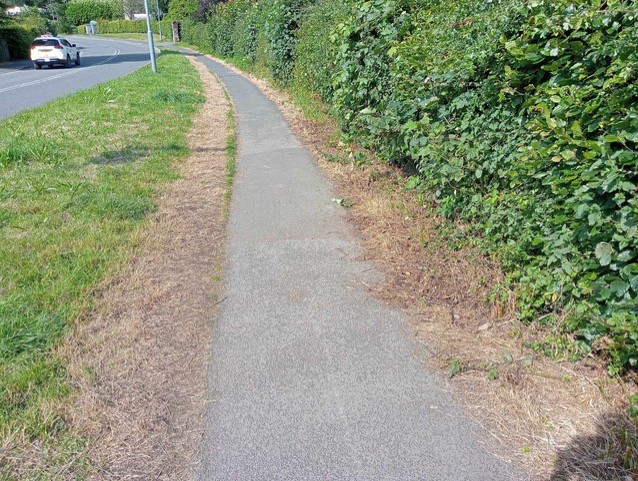
A call has been made for Keswick to be considered as a potential pilot project for testing alternative approaches to the removal of unwanted plants.
Town clerk Vivien Little said Sustainable Keswick had been in contact with the town council regarding concerns about the overuse of herbicides on footpaths in Keswick as recent uses have been somewhat excessive and had caused a lot of damage.
A letter had been sent by Sustainable Keswick to Cumberland Council and Keswick Town Council had been asked to do the same, given its lobbying role, especially with its climate change ambitions.
Before resigning as a town councillor, Sally Lansbury, who is now standing as a candidate for Keswick MP Markus Campbell-Savours’s vacated seat on Cumberland Council, drafted a letter which was agreed could be sent.
“Despite the increasing awareness of the benefits of leaving land and grass verges to grow for the benefit of wildlife, in early June this year, contractors appear to have over-sprayed herbicide around many parts of Keswick’s paths and public realm areas.
“This has not only created some unsightly areas, but it will inevitably have eliminated wildlife in those areas, having an impact upon local biodiversity (with a particular impact on bees and other pollinators).
“The implications of pesticide use (including herbicide use) on human health and biodiversity are of concern to Sustainable Keswick. It seems that although individual products on the market have been tested for health and safety, no testing is carried out on the impacts of a mix of products, or on the wider environmental implications.”
Alternative approaches to weed reduction listed by the Pesticide Action Network include the use of hot foam, high pressure hot water, vinegar, flame treatments, mulch, brushing and electronic control, which is said to be particularly useful for invasive species.
The letter ends by saying: “One suggestion is to set up pilot projects to test the practicalities and effectiveness of various alternatives. Could Keswick be considered as a potential pilot project for testing alternative approaches to the removal of unwanted plants?”








